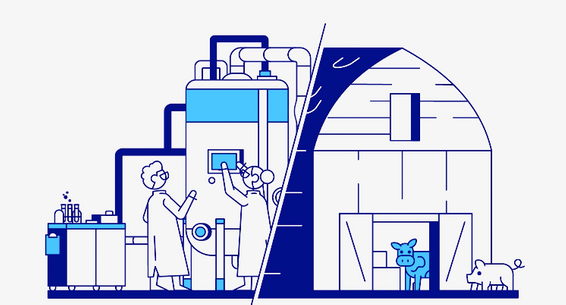Topics: Alternative nutrients, microbial foods, sustainability, resilience, engineering biology, food security
Type: Briefing paper
Publication date: May 2025
Download
Download the full paper [PDF]
Download the executive summary [PDF]
Authors
Lucas Coppens, Shirin Bamezai, Karen Polizzi, Gary Frost, Tilly Collins, Richard Carmichael, Rodrigo Ledesma-Amaro, Elena Corujo-Simon
Find out more

Microbial foods as an alternative source of nutrients
Infovideo about microbial foods briefing paper
Read our briefing paper to find out about the potential of microbial foods as a sustainable, healthy and resilient source of nutrients for the UK

Microbial foods as an alternative source of nutrients
Stream of Microbial Foods Briefing Paper launch, panel discussion and audience Q&A
Streamed on 1 May 2025
Author Presentation: Key Findings by Dr Rodrigo Ledesma Amaro
Panel Discussion: Alyssa Gilbert chairs a discussion from academics, food regulators and innovation startups' representatives about the potential of microbial foods as source of nutrients in the UK [96 minutes].
- Alyssa Gilbert, Co-Director for The School of Sustainability and Director of Innovation, Grantham Institute & Director of Undaunted, Imperial College London (Chair)
- Dr Thomas Vincent, Deputy Director for Innovation Policy, Food Standards Agency
- Professor Gary Frost, Chair in Nutrition & Dietetics, Department of Metabolism, Digestion and Reproduction
- Dr Afroditi Chatzifragkou, Associate Professor in Sustainable Bioprocessing and Director of Teaching and Learning, Department of Food & Nutritional Science at University of Reading
- Dr Richard Smith, Head of Synthetic Biology, Better Diary
Summary
Issues
- The UK’s demand for protein is estimated to rise by 5% by 2030.
- Production of protein relies largely on animal agriculture in the UK and abroad.
- A rising dependence on imports (30-40% of most meals) creates vulnerability to external supply challenges and political shocks.
- Production of animal feed and animal products is the largest contributor to detrimental land-use change and agricultural carbon emissions world-wide.
- High consumption of animal products is associated with poor nutritional profile (such a high saturated fat intake, high cholesterol levels) and occurrence of digestive tract cancers. These pose population-level health risks for all ages.
Solutions
- Microbial foods are produced with the aid of microorganisms via processes such as fermentation and have been consumed in various human cultures for millennia.
- Production of microbial foods is much less resource intensive and more sustainable than current animal-based food production and import, with lower greenhouse gas (GHG) emissions, land requirement, water use and pollution.
- Microbial foods can provide alternative sources of protein and fibre and be engineered to have a healthy nutrient dense profile.
- The microbial foods industry has immense potential to become a successful sector in the UK. This is an opportunity for economic growth and job creation, and to improve the national food supply.
- Investment in R&D and infrastructure is needed, paired with a collaborative regulatory office connected to entrepreneurs and researchers, to safeguard the UK’s reputation as a leader in this sector.
Download
Download the full paper [PDF]
Download the executive summary [PDF]
